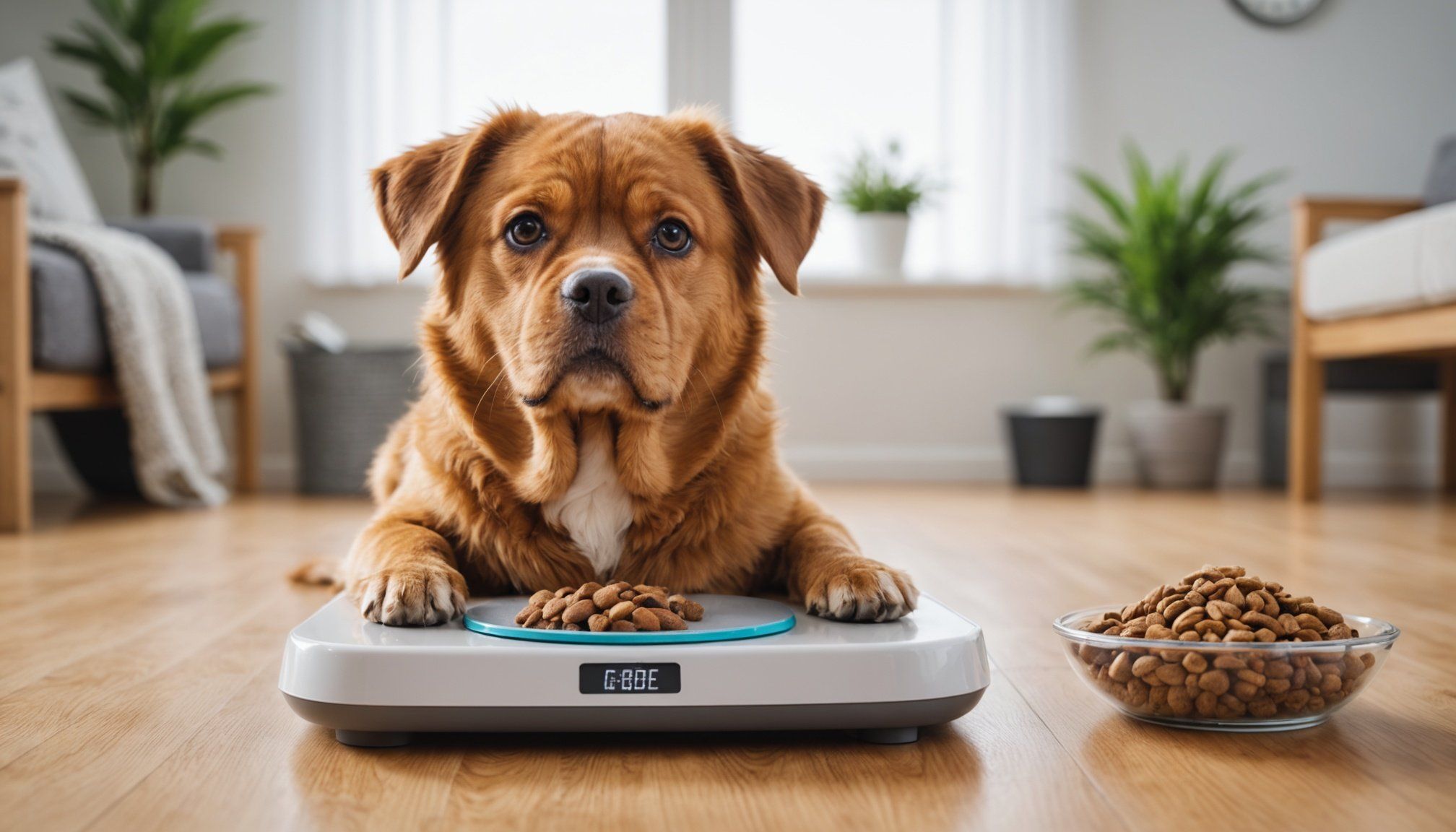Nutritional Strategies for Weight Control
To manage pet weight effectively, a balanced diet plays a crucial role. Ensuring your pet receives necessary nutrients without excess calories is fundamental in preventing and addressing pet obesity.
Choosing the Right Pet Food
Selecting appropriate pet food is essential. Opt for products tailored to your pet’s specific needs, considering factors like age, size, and activity level. Look for labels that indicate a balance of nutrients and avoid those high in fillers and artificial additives.
Have you seen this : Unleash Boundless Fun: Must-Have Toys for High-Energy Dog Breeds!
Importance of Portion Control
Maintaining strict portion control helps manage caloric intake. Overfeeding, even from the best food, can contribute to weight gain. Utilize measuring cups to determine the right amount of food per serving, adjusting as needed based on your pet’s weight and lifestyle.
The Role of Treats in Diet Management
Treats should be part of your pet’s diet in moderation. Consider:
In the same genre : Top Must-Have Features of a Luxury Cat Travel Carrier: Don’t Miss These Essentials!
- Selection of low-calorie treats to minimize calorie intake.
- Monitoring the frequency and portion sizes of treats given.
- Incorporating healthy snack alternatives like small pieces of apple or carrot.
Incorporating these nutritional strategies ensures your pet maintains a healthier weight and mitigates the health risks associated with obesity. Consistent diet monitoring and adjustments are necessary to align with their evolving nutrition needs.
Understanding Pet Obesity
Pet obesity is an escalating concern, impacting not just the well-being but also the lifespan of beloved animals. According to recent statistics, nearly 60% of cats and 56% of dogs in certain populations are overweight or obese. These figures highlight a pressing issue in maintaining proper pet health.
One major consequence of obesity in pets is the increased risk of developing severe health problems, such as diabetes, arthritis, and heart disease. The importance of effective weight management cannot be overstated, as it significantly enhances a pet’s quality of life and longevity.
Various factors contribute to weight gain in pets. A prevalent issue is overfeeding, often stemming from misjudging portion sizes or an excessive number of treats. Additionally, a sedentary lifestyle, common in household pets, further exacerbates the risk of gaining weight. Poor nutrition choices, high in fillers and artificial components, also play a significant role.
Maintaining a healthy weight for pets involves a collaborative effort combining proper diet, exercise, and regular health checks. Engaging pets in regular physical activities supports weight control and complements nutritional strategies. Consulting with veterinarians to create a personalised plan tailored to the pet’s specific needs is vital in effectively managing pet obesity. Regular assessments ensure the effectiveness of these strategies, promoting sustained pet health.
Exercise Recommendations for Pets
For optimal pet health, incorporating regular exercise into your pet’s routine is crucial. This not only aids in effective weight management but also improves behavioural and physical health.
Daily Exercise Requirements
It’s important to tailor pet exercise routines according to the specific needs of your pet. Dogs, for example, generally require 30 minutes to two hours of exercise per day. Cats benefit from shorter bursts of play spread throughout the day. Consistent activity ensures pets maintain a healthy weight and alleviates common issues associated with pet obesity.
Fun Activities to Promote Fitness
Introducing engaging activities can further boost an animal’s activity levels. Interactive games like fetch or hide-and-seek can promote fitness in a playful manner. For dogs, involves chasing or tug-of-war is beneficial. Cats often enjoy pouncing on toys or climbing structures.
- Engaging games: Helps integrate physical activity with enjoyment.
- Importance of socialisation: Enhances physical workouts through playful interaction with other pets or humans.
- Structured exercise routines: Should be adjusted according to the pet’s breed, age, and health status to ensure safety and effectiveness.
These activities not only support physical health but also strengthen bonds between pets and their owners, making fitness fun and beneficial for both parties.
Behavioral Strategies to Prevent Overeating
Understanding pet behavior is crucial in managing their feeding habits, as this can significantly impact weight control. By recognising cues that differentiate genuine hunger from boredom in pets, owners can prevent unnecessary feeding. For example, a pet might appear hungry due to excitement, but close observation often reveals they seek activity or attention rather than food.
Understanding Your Pet’s Relationship with Food
Pets form habits around feeding times and environments, influencing their overall health. Recognising these patterns helps decipher if a pet is truly in need of food or simply accustomed to certain routines. Observing behavioural cues such as persistent begging or food guarding can signal a stronger emotional than physical need for food.
Training Techniques to Encourage Healthy Eating
Incorporating training techniques like positive reinforcement can effectively modify feeding habits. Encouraging pets to eat only at designated times, and rewarding them for complying, promotes healthy feeding schedules. Additionally, teaching pets to distinguish between hunger and boredom through interactive toys or exercises can curb unnecessary eating.
- Positive reinforcement methods: Reward with affection or a small treat when the pet adheres to a healthy eating pattern.
- Regular feeding schedule: Establishing consistent meal times aids in routine formation.
- Behavioral cues: Identifying signs of actual hunger versus boredom-driven requests.
Monitoring and Adjusting Weight Control Plans
Maintaining optimal pet health requires consistent weight monitoring and adapting strategies. Start by weighing your pet regularly, ensuring any fluctuations are noted. Regular tracking helps identify patterns and the effectiveness of current plans, providing insights for adjustments.
Weighing Your Pet Regularly
Regularly scheduled weigh-ins, using accurate methods, can help track your pet’s progress. Recognising subtle changes in weight ensures you can swiftly address any deviations from the desired weight range, reinforcing good weight management practices.
When to Consult a Veterinarian
While regular monitoring is vital, there are times when professional advice becomes necessary. Consult a veterinarian if your pet’s weight doesn’t align with health goals despite consistent efforts. These experts can provide targeted advice, identifying any underlying health issues contributing to weight challenges.
Adjusting Diet and Exercise Plans Based on Progress
Signs of weight control success include consistent weight within target ranges and improved activity levels. Conversely, unexpected weight gain or lethargy might signal the need for strategy adjustments. As pets age or change their activity levels, adapt diet and exercise routines to match evolving needs. Veterinary support aids in refining strategies, ensuring long-term success. Regular check-ups not only offer expert guidance but also reassure pet owners about their pet’s health trajectory.



